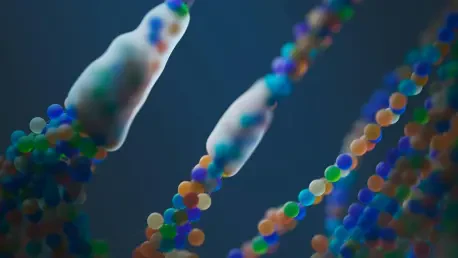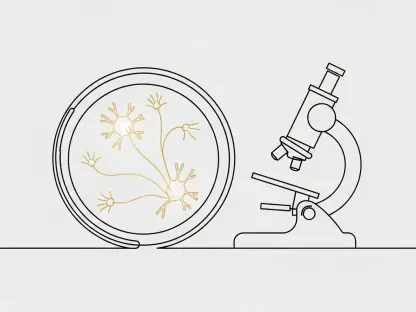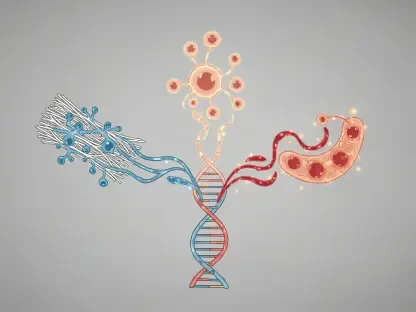In recent years, the battle against cancer has seen the emergence of innovative approaches, particularly in immunotherapy. Chimeric Antigen Receptor (CAR) T cell therapy, famously effective against blood cancers, faces significant hurdles when applied to solid tumors. A critical challenge is the limited lifespan and effectiveness of CAR-T cells when they engage with tumors, often due to activation-induced cell death. Recent advancements, however, offer hope. Researchers at Massachusetts General Hospital have pioneered a method using CRISPR technology to enhance CAR-T cells’ durability. These developments are poised to transform cancer treatment strategies and broaden therapeutic potentials for patients suffering from solid tumors.
What Are CAR-T Cells, and How Do They Work?
CAR-T cells are a form of immunotherapy in which T cells from a patient are modified to better recognize and fight cancer cells. These cells are engineered to express special structures called chimeric antigen receptors (CARs) on their surface. When reintroduced into the body, they seek out and destroy cancer cells. Originally developed for blood cancers, CAR-T cells demonstrate reduced efficacy in addressing solid tumors, largely due to complexities in the tumor microenvironment and issues with cell longevity.
Why Are Solid Tumors a Challenge for CAR-T Therapy?
The primary challenge with solid tumors is their unique microenvironment, which can be hostile to immune cells. Solid tumor barriers, such as dense tissue and immunosuppressive cells, limit CAR-T cell penetration and survival. Activation-induced cell death further hampers these cells, effectively reducing their numbers before they can thoroughly attack tumor cells. Consequently, enhancing CAR-T persistence in such environments is essential for therapeutic success.
How Does CRISPR Technology Improve CAR-T Cell Functionality?
CRISPR/Cas9 technology allows precise editing of genes within cells. Researchers have utilized this tool to knock out the IFNg receptor in CAR-T cells, thus preventing detrimental responses to Interferon gamma. Normally required for tumor cell killing, an excess of IFNg has been known to cause toxicities and inflammation. By editing the receptor, scientists have managed to circumvent these negative effects, resulting in CAR-T cells that expand more effectively, persist longer, and exhibit greater anti-tumor activity.
What Are The Implications of These Research Findings?
The implications of modifying CAR-T cells with CRISPR are significant. The study demonstrates that such cells can successfully target and eradicate solid tumor cells more robustly than their unmodified counterparts. This suggests a potential for broad applications across various tumor types. The enhanced expansion and persistence of these modified CAR-T cells also open up new avenues for effectively managing cancers that are currently challenging to treat with traditional therapies.
What Is the Future Direction of This Research?
Researchers are keen to move forward with clinical trials to evaluate these genetically altered CAR-T cells in human patients with solid tumors. The promising results observed in cell cultures and murine models provide a compelling basis for clinical translation. If successful, this approach might serve as a foundational strategy for developing new CAR-T cell therapies, thereby expanding the landscape of cancer immunotherapy.
Takeaways and Future Considerations
The study’s findings mark a step forward in overcoming the obstacles posed by solid tumors in CAR-T cell therapy. Scientists have created a pathway to more potent and long-lasting treatments by leveraging CRISPR to enhance CAR-T cell resilience. Continued research and upcoming clinical trials will determine the practical applications of these modified cells. Beyond their immediate implications, these advancements highlight the transformative potential of combining genetic engineering with cellular therapies to battle cancer more effectively. This progress also underscores the broader appeal of personalized medicine in developing treatments precisely tailored to overcome individual tumor challenges.









